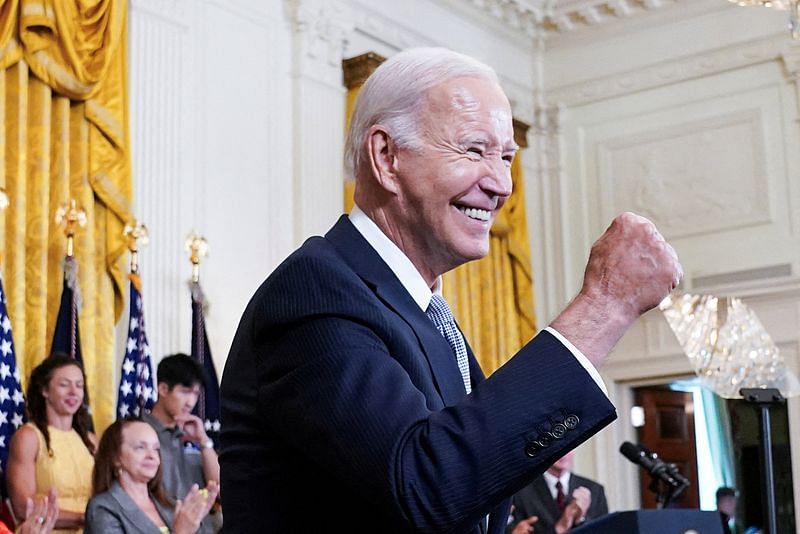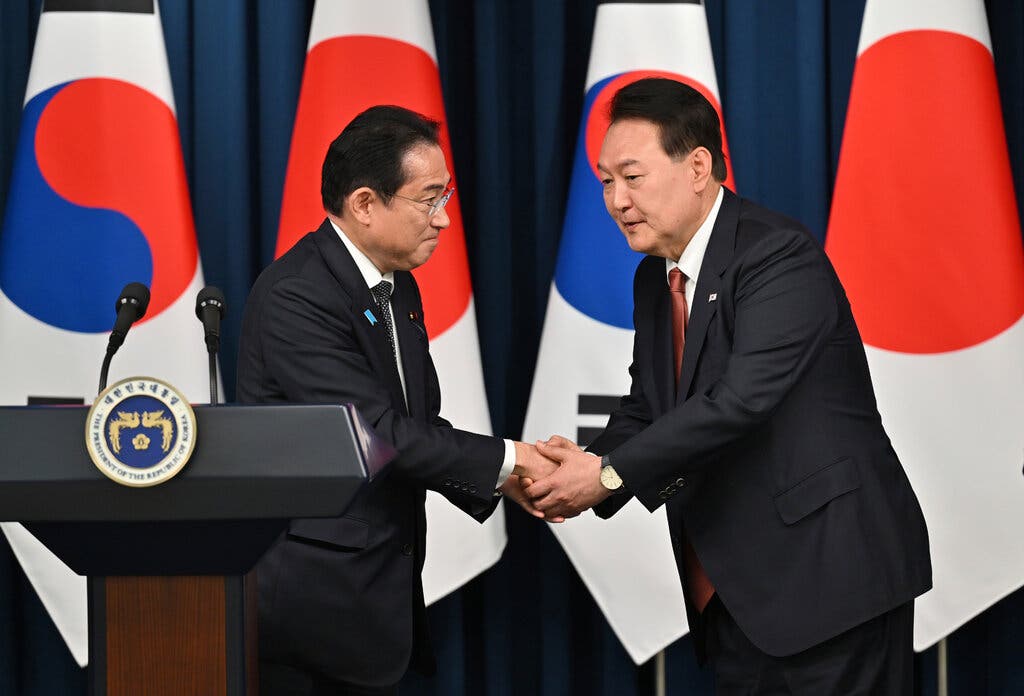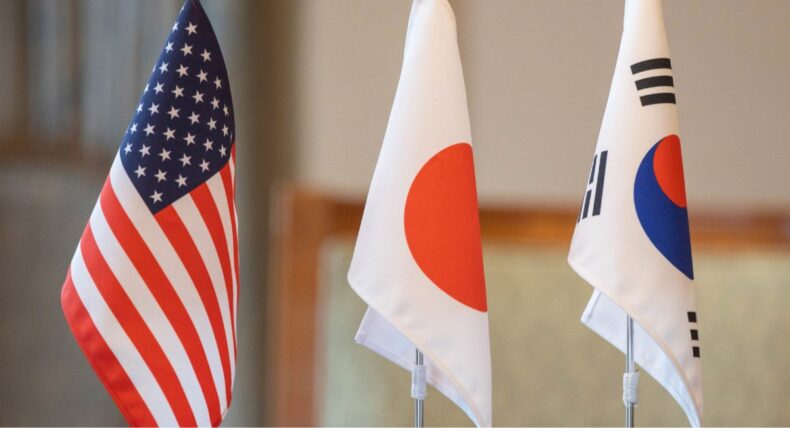This week, Yoon Suk Yeol marked his country’s 1945 independence from Japan. The South Korean president didn’t dwell on the past occupation but emphasized the partnership based on shared values. Amid North Korean threats and concerns, Yoon prioritized addressing “Communist aggression.”

Caption: President Yoon Suk Yeol delivers a address at Ewha Womans University in Seoul, commemorating the 78th anniversary of National Liberation Day from Japan’s colonial rule (1910-1945).
The Biden administration perceives a transformative shift in East Asia—a stronger relationship between long-contentious allies to counter China’s influence and bolster Taiwan’s defence. President Biden plans to solidify this during a Camp David summit.
Although the summit might not result in a formal defence commitment, it will establish a mutual understanding of regional responsibilities.
Dennis Wilder, an ex-official who managed Japan-South Korea relations, expressed astonishment at the Camp David meeting, considering past difficulties in getting these leaders together.
Diplomats from the US, Japan, and South Korea point to a shared concern over an assertive China and an unpredictable North Korea as drivers of improved relations.
Yoon’s push to overcome the impasse has generated crucial momentum for enhanced cooperation, according to South Korean deputy national security advisor Kim Tae-hyo. The upcoming Camp David meeting is expected to be their most extended interaction.
Advancing South Korea-Japan Relations: Challenges and Plans
Efforts to forge closer bonds between South Korea and Japan have faced setbacks before. In 2019, disputes over Japan’s treatment of Koreans during wartime resulted in cancelled military intelligence sharing and trade restrictions on crucial chip manufacturing supplies.
This time, the success of the current initiative relies on the three leaders, which comes with its risks. Roughly 40% of voters approve of Yoon, Kishida, or Biden in their respective countries, and there’s little indication that ordinary citizens prioritize this rapprochement.

To solidify progress, the White House aims to establish routine cooperation on military exercises, ballistic missile defence, the economy, and technology research, making it harder to reverse the advancements between South Korea and Japan. Plans include making the summit an annual event and investing in a crisis hotline.
Cooperation will encompass various issues, according to a Japanese foreign ministry official.
China’s Apprehensions Amidst East Asian Developments
Simultaneously with Yoon’s positive stance on the Japanese partnership, Kishida caused discontent among South Koreans for reportedly offering tributes to the Yasukuni shrine, which honours WWII war criminals.
China seized this chance to criticize Tokyo before the Camp David summit, leveraging issues like the planned release of Fukushima nuclear plant water into the ocean.
The Camp David discussions aren’t expected to sharply escalate tensions, but Beijing perceives Washington’s attempts at diplomatic isolation and military encirclement.
Biden’s team aims to ease tensions before potential talks with Chinese President Xi Jinping.
Biden’s Camp David Summit: Pivotal Moment for Asian Security
The longstanding historical tensions between America’s key Asian allies, Japan and South Korea, have posed a vulnerability to U.S. security interests in the region. Lingering resentment over Japan’s colonial past and perceived reluctance to address it have hindered a united allied stance in the Pacific.
However, the current security landscape has grown increasingly precarious. China’s aggressive military buildup, expansive territorial claims, and threats to Taiwan and its neighbours, coupled with North Korea’s nuclear and missile menace, have escalated the risk of conflict in Asia.
In light of these challenges, President Biden’s upcoming meeting at Camp David with Prime Minister Fumio Kishida of Japan and President Yoon Suk Yeol of South Korea takes on great significance.

Caption: In May, President Yoon Suk Yeol of South Korea greeted Japan’s Prime Minister Fumio Kishida in Seoul.
This stand-alone leader’s summit marks a crucial opportunity that must not be squandered. To ensure the long-term stability and security of Asia, it is imperative that these leaders express unwavering unity more strongly than ever before.
A reinforced alliance between Japan, South Korea, and the United States transcends being a mere military advantage. It stands as a geopolitical imperative at a time when powers like China and Russia are fueling the rise of illiberalism, economic coercion, and challenges to global norms.
The combined strength of three major democracies, economies, and technology leaders has the potential to safeguard the rules-based international order, contingent on their ability to uphold cohesion.













